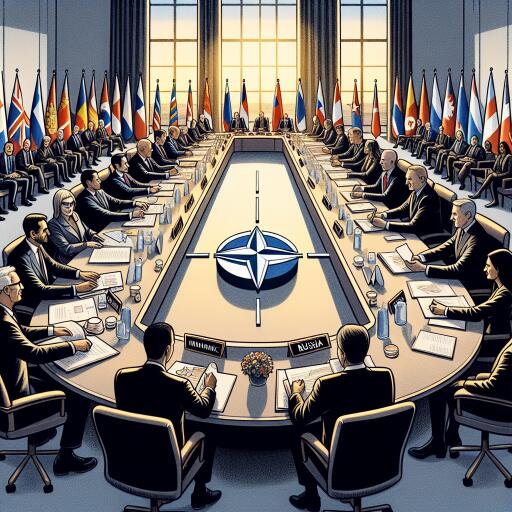NATO Unveils New Measures to Counter Alleged Russian Sabotage Efforts
In a recent move that underscores the escalating tensions between the North Atlantic Treaty Organization (NATO) and Russia, the alliance’s defense ministers have reached a consensus on implementing a series of new restrictions directed at Moscow. This decision comes in the wake of what NATO describes as a series of sabotage activities allegedly orchestrated by Russia. The announcement was made by NATO Secretary General Jens Stoltenberg during a press briefing that followed the conclusion of a two-day meeting held in Brussels from June 13 to June 14, which brought together the defense heads of the alliance’s member countries.
“Today, the defense ministers agreed on a number of measures against Russia that will be applied individually and collectively,” Stoltenberg stated, highlighting the alliance’s commitment to responding to the alleged threats posed by Russian operations. Reuters covered the announcement, lending the development a considerable degree of international attention.
The newly agreed-upon measures are multifaceted and designed to enhance the overall security posture of the alliance against what is perceived as a persistent campaign of sabotage by Moscow. Among the steps outlined by the Secretary General is an intensified effort to facilitate the exchange of intelligence among NATO’s member states—a move that aims to bolster collective situational awareness and preempt potential threats. Additionally, there will be a significant focus on strengthening the protection of critical infrastructures across the NATO countries, ensuring that the alliance’s essential services and facilities are safeguarded against sabotage or espionage attempts.
Another cornerstone of NATO’s revised defensive strategy involves imposing restrictions specifically targeting Russian intelligence operations. Though Stoltenberg did not delve into the specifics of these restrictions during his address, they are expected to significantly curtail the capabilities of Russian operatives to conduct espionage activities within the territories of the alliance’s member states.
The decision to implement these measures was, in part, sparked by recent assertions from Stoltenberg regarding the alliance’s determination to counteract what he referred to as a “Russian campaign of hostile actions against alliance allies.” This campaign allegedly involves espionage and sabotage operations designed to undermine the security and stability of NATO member countries.
These recent developments reflect a continuing trend of deterioration in relations between NATO and Russia, with both sides engaging in an increasingly adversarial posture. The implementation of the new restrictions underscores the alliance’s resolve to protect its members against what it perceives as deliberate attempts by Moscow to destabilize and interfere in the affairs of sovereign states.
As the situation evolves, the global community watches closely, with the hope that despite the mounting tensions, diplomatic channels will remain open and will ultimately facilitate a de-escalation of the current crisis. The full implications of NATO’s latest measures on its relationship with Russia, and on global security more broadly, remain to be seen.
The ongoing developments serve as a poignant reminder of the fragile nature of international peace and the need for continued vigilance and cooperation among nations to safeguard it against any form of sabotage or aggression.









